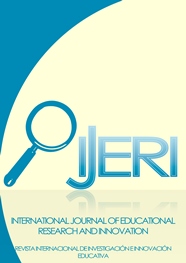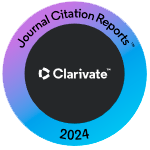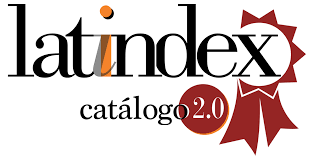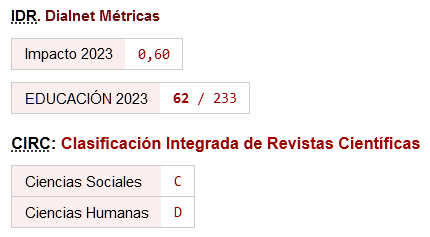The teaching modalities in the new normal for the 2020-21 academic year in Spanish public universities
DOI:
https://doi.org/10.46661/ijeri.5291Keywords:
University, blended learning, face-to-face classes, online training, new normal, Covid-19Abstract
The Covid-19 pandemic and the health measure adopted through the confinement of the population at a global level with different degrees and intensities to try to control infections have affected practically all sectors of the population and the ways and means of developing work . On a global scale, the confinement measures have meant, at the same time, the closure of educational centers at all levels. This measure has driven, for the most part, that education went from the face-to-face mode to the online mode. International organizations would recommend the development of contingency protocols and adaptation of teaching to Higher Education institutions. In this sense, the Spanish public universities, before the imminent start of the course, have developed their teaching and contingency plans for the 2020-21 academic year following recommendations from the Ministry of Universities. The objective of the study was to identify which face-to-face, mixed or online teaching modalities have been proposed by the 50 Spanish public universities. For this, the methodology of qualitative content analysis was used on more than 50 documents located on the web pages of the universities that would allow the development of a series of categories to classify the methodologies in the different scenarios presented by the universities. The main methodologies used by public universities in the current “new normal” have been the mixed modality and the adapted secure face-to-face modality, anticipating moving to the online modality if the health situation requires it.
Downloads
References
ESALC-UNESCO (2020). El coronavirus-19 y la educación superior: impacto y recomendaciones. Recuperado de: https://www.iesalc.unesco.org/2020/04/02/el-coronavirus-covid-19-y-la-educacion-superior-impacto-y-recomendaciones
García-Planas, M.I., y Taberna-Torres, J. (2020). Transición de la docencia presencial a la no presencial en la UPC durante la pandemia del COVID-19. International Journal of Educational Research and Innovation (IJERI), 15, 177-187. https://doi.org/10.46661/ijeri.5015
Viner, R. M., Russel, S. J., Croker, H., Packer, J., Ward, J., Stansfield, C., Mytton, O., Bonell, C., & Booy, R. (2020). School closure and management practices during coronavirus outbreaks including COVID-19: a rapid systematic review. Lancet Child Adolesc Health, 4, 397-404. https://doi.org/10.1016/S2352-4642(20)30095-X
Alves, R., Lopes, T., &y Precioso, J. (2020). El bienestar de los docentes en tiempos de pandemia Covid-19: factores que explican el bienestar profesional. International Journal of Educational Research and Innovation (IJERI), 15, 203-217. https://doi.org/10.46661/ijeri.5120
Azevedo, J. P., Hasan, A., Goldemberg, D., Iqbal, S. A., & Koen, G. (2020). Simulating the potential impacts of Covid-19. School closures on schooling and learning outcomes: a set of global estimates. New York: World Bank Group. Recuperado de: http://pubdocs.worldbank.org/en/798061592482682799/covid-and-education-June17-r6.pdf
Burkle, M., & Cobo, C. (2018). Redefining Knowledge in the Digital Age. Journal of New Approaches in Educational Research, 7(2), 79-80. DOI https://doi.org/10.7821/naer.2018.7.294
Cabero-Almenara, J., Arancibia, M., & del Prete, A. (2019). Technical and Didactic Knowledge of the Moodle LMS in Higher Education. Beyond Functional Use. Journal of New Approaches in Educational Research, 8(1), 25-33. http://dx.doi.org/10.7821/naer.2019.1.327
Cáceres, P. (2008). Análisis cualitativo de contenido: una alternativa metodológica alcanzable. Psicoperspectivas. Individuo y sociedad, 2(1), 53-82.
Cendon, E. (2018). Lifelong Learning at Universities: Future Perspectives for Teaching and Learning. Journal of New Approaches in Educational Research, 7(2), 81-87. http://dx.doi.org/10.7821/naer.2018.7.320
Dreesen, T., Akseer, S., Brossard, M., Dewan, P., Giraldo, J.P., Kamei, A., Mizunoya, S., & Ortiz, J.S. (2020). Promising practices for equitable remote learning Emerging lessons from COVID-19 education responses in 127 countries. Florence: UNICEF Innocenti.. Recuperado de: https://www.unicef-irc.org/publications/1090-promising-practices-for-equitable-remote-learning-emerging-lessons-from-covid.html
ESALC-UNESCO (2020). El coronavirus-19 y la educación superior: impacto y recomendaciones. Recuperado de: https://www.iesalc.unesco.org/2020/04/02/el-coronavirus-covid-19-y-la-educacion-superior-impacto-y-recomendaciones
Giroux, H., Rivera-Vargas, P., & Passeron, E. (2020). Pedagogía Pandémica. Reproducción Funcional o Educación Antihegemónica. Revista Internacional De Educación Para La Justicia Social, 9(3). Recuperado de: https://revistas.uam.es/riejs/article/view/12199
González, T. (27 de mayo de 2020). La Universidad de Salamanca apostará por un “modelo de presencialidad segura” en el curso 2020/2021. Salamanca24horas. Recuperado de: https://www.salamanca24horas.com/texto-diario/mostrar/1970972/universidad-salamanca-apostara-modelo-presencialidad-segura-curso-2020-2021
Lázaro-Cantabrana, J., Usart-Rodríguez, M., & Gisbert-Cervera, M. (2019). Assessing Teacher Digital Competence: the Construction of an Instrument for Measuring the Knowledge of Pre-Service Teachers. Journal of New Approaches in Educational Research, 8(1), 73-78. http://dx.doi.org/10.7821/naer.2019.1.370
Mayring, P. (2000) Qualitative content analysis. Forum Qualitative Social Research/Sozialforschung, 1(2). http://dx.doi.org/10.17169/fqs-1.2.1089
Ministerio de Universidades (31 de agosto de 2020). Recomendaciones del Ministerio de Universidad a la Comunidad Universitaria para adaptar el curso universitario 2020-2021 a una presencialidad adaptada y medidas de actuación de las universidades ante un caso sospechoso o uno positivo de Covid.19. Madrid: Gobierno de España. Recuperado de: https://www.ciencia.gob.es/stfls/MICINN/Universidades/Ficheros/Recomendaciones_del_Ministerio_de_Universidades_para_adaptar_curso.pdf
Pulido-Montes, C., Alventosa-Bleda, E., Mateu-Luján, B., Carrasco-González, A., & Mengual-Andrés, S. (2020). Calves para la innovación pedagógica ante los nuevos restos: respuestas en la vanguardia de la práctica educativa. En D., Cobos-Sanchís., E. López-Meneses., L. Molina-García., A. Jaén-Martínez., & y A. H. Martín-Padilla (Eds.), Claves para la innovación pedagógica ante los nuevos retos: respuestas en la vanguardia de la práctica educativa, (en prensa). Barcelona: Octaedro.
Real Decreto 463/2020, de 14 de marzo, por el que se declara el estado de alarma para la gestión de la situación de crisis sanitaria ocasionada por el COVID-19. Boletín Oficial del Estado. Madrid, 14 de marzo de 2020, núm. 67, pp. 25390 a 25400
Reimers, F. M., & Schleicher, A. (2020a). Un marco para guiar una respuesta educativa a la pandemia del 2020 del Covid-19. Perú: Enseña Perú. Recuperado de: https://globaled.gse.harvard.edu/files/geii/files/un_marco_para_guiar_una_respuesta_educativa_a_la_pandemia_del_2020_del_covid-19_.pdf
Reimers, F.M., & Schleicher, A. (2020b). Schooling disrupted, schooling rethought. How the Covid.19 pandemic is changing education. París: OECD. Recuperado de: https://globaled.gse.harvard.edu/files/geii/files/education_continuity_v3.pdf
Torrecillas, C. (2020). El reto de la docencia online para las universidades públicas españolas ante la pandemia del Covid-19. ICEI Papers COVID-19, (16). Recuperado de: https://eprints.ucm.es/60050/
Trujillo-Torres, J. M. & Romero-Rodríguez, J. M. (2018). La metodología blended learning en educación superior: un estudio interuniversitario sobre su consolidación en la Universidad española. En R. Roig Vila (Ed.), El compromiso académico y social a través de la investigación e innovación educativas en la Enseñanza Superior (pp. 476-486). Barcelona: Octaedro.
UNESCO (2020). El cierre de escuelas debido a la Covid-19 en todo el mundo afectará más a las niñas. Recuperado de: https://es.unesco.org/news/cierre-escuelas-debido-covid-19-todo-mundo-afectara-mas-ninas
Viner, R. M., Russel, S. J., Croker, H., Packer, J., Ward, J., Stansfield, C., Mytton, O., Bonell, C., & Booy, R. (2020). School closure and management practices during coronavirus outbreaks including COVID-19: a rapid systematic review. Lancet Child Adolesc Health, 4, 397-404. https://doi.org/10.1016/S2352-4642(20)30095-X
Zubillaga, A., & Cortazar, L. (2020). Covid-19 y Educación I: problemas, respuestas y escenarios. Fundación Cotec para la Innovación. Recuperado de: https://cotec.es/proyecto/educacion-y-covid-19/
Downloads
Published
How to Cite
Issue
Section
License
Copyright (c) 2020 Cristina Pulido Montes, Santiago Mengual And´res

This work is licensed under a Creative Commons Attribution-NonCommercial-NoDerivatives 4.0 International License.












